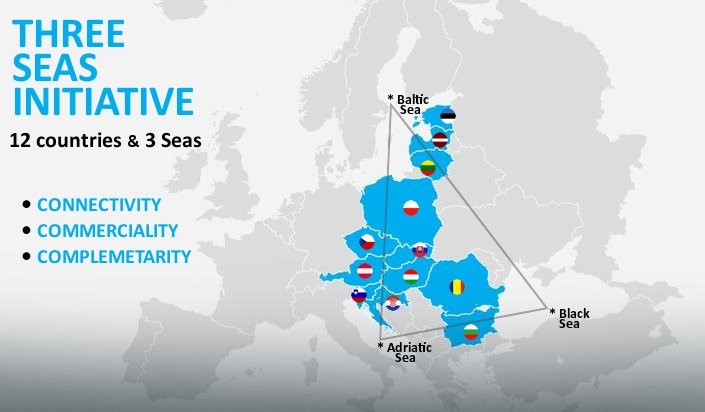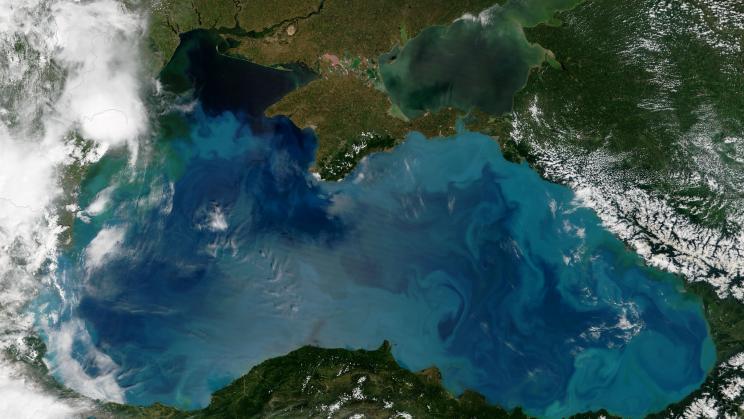
Deniz ÜNVER
Independent Researcher
The European Parliament proposed the joint withdrawal of the EU countries from the controversial Energy Charter Treaty (ECT), which prevents efforts to combat climate change as it protects fossil fuel-related energy investments, on July 7, 2023 [1]. The main reason for this decision was shown as the fact that the ECT was compatible with neither the EU’s green agenda nor the Paris Agreement.
The ECT, which was initiated after the collapse of the Soviet Union, had the aim of protecting Western energy investments in battered post-Soviet economies. As a matter of fact, The ECT, signed in Lisbon in 1994, was established in order to provide cross-border cooperation between the Western and Eastern countries [2]. While doing so, the ECT offered extra guarantees to Western investor firms doing business in post-Soviet countries, which were trying to transform their economies to market capitalism [3]. Thanks to the ECT, Western firms are under protection against discriminatory access, expropriation, nationalization, breaches of contract and other unexpected circumstances affecting the profit expectations of the Western firms [4]. The Treaty, whose provisions include trade in energy goods, investment, transit and efficiency, has grown over time, and it had 53 signatory countries, including the EU countries, despite the fact that significant energy exporters such as the US, Saudi Arabia and Russia did not sign the deal [5].
Thus, Türkiye is one of the signatory countries of the ECT. Türkiye signed the ECT on December 17, 1994 [6]. Indeed, Ambassador Selim Kuneralp was appointed as the Deputy Secretary General of the Energy Charter Treaty on December 1, 2014 [7].
However, The ECT has always been considered to be a controversial treaty due to its incompatibility with the EU’s motivation to turn to green energy. The ECT has dispute settlement mechanisms, which made the corporations that operate oil fields, natural gas pipelines, and coal-fired power plants sue states that can pass legislation in order to combat climate change and curb CO2 emissions [8]. Until now, many countries from the EU have faced lawsuits due to the dispute settlement mechanism of the ECT. For instance, the Netherlands was sued by two different lawsuits from German energy companies seeking to get compensation for Germany’s phase-out of coal power [9]. In addition to the Netherlands, other EU countries were sued by the energy companies with regard to the ECT. For instance, the Spanish government is struggling against the payout of 21 claims from solar power investors whose claim was losing 70 billion dollars when the Spanish government changed the feed-in tariffs in 2012 [10]. Those investor companies are challenging Spain for approximately 9.5 billion dollars[11]. Furthermore, the Italian government was obliged to pay 190 million euros to the Rockhopper, a UK oil and gas company, because of a ban covering an oilfield off Abruzzo, Italy’s coast [12]. Thus, it is known that at least 157 energy groups, banks and investors have sued the national authorities for more than 40 billion euros despite the fact that the ECT cases against governments and compensation given to the ECT [13]. Indeed, those million dollars worth of cases against States fueled the withdrawal proposal from the European Parliament since the withdrawal proposal came from the countries that have the highest number of claimants, according to the Secretariat of the ECT [14].
Before the proposal of withdrawal, Brussels had tried to reform the ECT. The primary motivation for the ECT reform was to make it more difficult for fuel companies to sue the governments over banning offshore drilling activities or coal phase-outs [15]. It is known that the EU went through 15 rounds of negotiation in order to reform the ECT and make it adaptable to the decarbonization efforts of the EU [16]. Also, Türkiye, which has doubled its carbon emission reduction target by 41 percent in order to combat climate change and realize green agenda [17], proposed some policy options to modernize the ECT in 2019. Nevertheless, the reform efforts did not work out, and eight EU countries, which are Denmark, France, Germany, Luxembourg, the Netherlands, Poland, Slovenia, and Spain, threatened to leave the ECT last November [18]. Also, Belgium was planning to leave the treaty before the proposal. The decision of those countries caused the executive to give up the reform efforts and recommend a collective exit on July 7 [19].
The comments on the withdrawal proposal were not delayed. According to Ludwig Essig from the Munich Environmental Institute, ¨ This is the right decision. Because an exit from the ECT is not only good for the climate but also for the budgets of the European member states [20].¨ In addition to this, Frans Timmermans, the European Commission’s Executive Vice President in charge of the Green Deal, stated, ¨The outdated ECT is not aligned with our EU Climate Law and our Commitments under the Paris Agreement [21].¨ Thus, he added that, ¨It is time for Europe to withdraw from this treaty and to put all of our focus on building an efficient and competitive energy system that promotes and protects renewable energy investments [22].¨ A similar comment came from Kadri Simson, EU Energy Commissioner, ¨I proposed that the EU withdraws from the Energy Charter Treaty because in its current, unmodernized version it is no longer in line with the EU’s energy and climate goals [23].¨
It is true that the EU can not apply the Green Agenda and can not be committed to the Paris Agreement by regulating the ECT. In fact, it would not be possible to reduce emissions by % 55% by 2030, with regards to the European Green Deal, while energy companies are suing EU governments against oil drilling. For this reason, the European Parliament chose to put forward the withdrawal proposal. Of course, the million-dollar worth of cases against the EU governments paved the way to the withdrawal proposal of the European Parliament as it leaves little space for the EU to fight against the climate crisis and reduce emissions. The COVID-19 pandemic and especially the war in Ukraine have forced the EU to turn itself to green energy due to rising energy prices. Türkiye is still committed to the ECT despite its efforts to reduce carbon emissions and combat climate crisis. At least for now. However, she can find herself toeing the line of the European Union before long in view of the urgent necessity of reducing the carbon emissions and thus combatting climate crisis worldwide.
[1] ¨EU tables Energy Charter Exit, Citing Climate Concerns¨, Euractiv, July 7, 2022, https://www.euractiv.com/section/energy/news/eu-tables-energy-charter-treaty-exit-citing-climate-concerns/
[2] Jorge Ribeiro, ¨What is the Energy Charter Treaty and Why is it so Controversial?, Euronews, October 26, 2022, https://www.euronews.com/my-europe/2022/10/26/what-is-the-energy-charter-treaty-and-why-is-it-so-controversial
[3] Ibid.
[4] Ibid.
[5] Ibid.
[6] Esra Demir, ¨Enerji Şartı Anlaşması¨, Ministry of Foreign Affairs, http://https://www.mfa.gov.tr/enerji-sarti-anlasmasi.tr.mfa
[7] ¨Selim Kuneralp appointed Energy Charter Deputy Secretary General¨, Energy Charter Treaty, https://www.energycharter.org/media/news/article/selim-kuneralp-appointed-energy-charter-deputy-secretary-general/
[8] Jorge Ribeiro, ¨What is the Energy Charter Treaty and Why is it so Controversial?¨, Euronews.
[9] Ibid.
[10] Alice Hancock and Camilla Hodgson, ¨EU Paves Way to Quit International Accord On Energy Investments¨, Financial Times, July 7, 2023, https://www.ft.com/content/c65d007c-c327-4ce2-98ad-83d7802cc64d
[11] Ibid.
[12] Ibid.
[13] Ibid.
[14] Ibid.
[15] Federico Di Sario, ¨EU Moves to Quit Energy Investment Treaty¨, Politico, July 7, 2023, https://www.politico.eu/article/energy-charter-treaty-ect-investment-europe-quit/
[16] Alice Hancock and Camilla Hodgson, ¨EU Paves Way to Quit International Accord On Energy Investments¨, Financial Times.
[17] Burak Bir, ¨Türkiye doubles its target to reduce carbon emissions to 41%¨, Anadolu Agency, November 15, 2022, https://www.aa.com.tr/en/environment/turkiye-doubles-its-target-to-reduce-carbon-emissions-to-41-/2738781
[18] Federico Di Sario, ¨ EU Moves to Quit Energy Investment Treaty, Politico.
[19] Jorge Ribeiro, ¨Brussels Tables EU-Wide Exit From The ECT, Considered at Odds With the Great Deal¨, Euronews, July 7, 2023, https://www.euronews.com/my-europe/2023/07/07/brussels-tables-eu-wide-exit-from-the-energy-charter-treaty-considered-at-odds-with-the-gr
[20] Federico Di Sario, ¨ EU Moves to Quit Energy Investment Treaty, Politico.
[21] Jorge Ribeiro, ¨Brussels Tables EU-Wide Exit From The ECT, Considered at Odds With the Great Deal¨, Euronews.
[22] Ibid.
[23] ¨EU tables Energy Charter Exit, Citing Climate Concerns¨, Euractiv, July 7, 2022, https://www.euractiv.com/section/energy/news/eu-tables-energy-charter-treaty-exit-citing-climate-concerns/
© 2009-2025 Avrasya İncelemeleri Merkezi (AVİM) Tüm Hakları Saklıdır
Henüz Yorum Yapılmamış.
-
 US WITHDRAWAL FROM AFGHANISTAN AND ITS POLICY TOWARDS CENTRAL ASIA - 24.06.2021
US WITHDRAWAL FROM AFGHANISTAN AND ITS POLICY TOWARDS CENTRAL ASIA - 24.06.2021
Deniz ÜNVER 29.06.2021 -
 EU’S EXIT FROM THE ENERGY CHARTER TREATY (ECT) - 02.08.2023
EU’S EXIT FROM THE ENERGY CHARTER TREATY (ECT) - 02.08.2023
Deniz ÜNVER 02.08.2023 -
 ÜÇ DENİZ GİRİŞİMİ (ÜDG): BATI'NIN BÜYÜK GÜÇ REKABETİ HAMLESİ-06.03.2023
ÜÇ DENİZ GİRİŞİMİ (ÜDG): BATI'NIN BÜYÜK GÜÇ REKABETİ HAMLESİ-06.03.2023
Deniz ÜNVER 06.03.2023 -
 GROWING CHINESE PRESENCE AND INTERESTS IN THE BLACK SEA
GROWING CHINESE PRESENCE AND INTERESTS IN THE BLACK SEA
Deniz ÜNVER 05.05.2021 -
 ATTEMPTS OF DE-DOLLARIZATION - 10.02.2023
ATTEMPTS OF DE-DOLLARIZATION - 10.02.2023
Deniz ÜNVER 10.02.2023
-
 PATRİCK DEVEDJİAN’IN KORONAVİRÜS'TEN ÖLÜMÜNÜN AKLIMIZA GETİRDİKLERİ… - T24 - 04.04.2020
PATRİCK DEVEDJİAN’IN KORONAVİRÜS'TEN ÖLÜMÜNÜN AKLIMIZA GETİRDİKLERİ… - T24 - 04.04.2020
Hasan Servet ÖKTEM 08.04.2020 -
 ERMENİSTAN'IN HIZLI DEĞİŞİMİ: DARBE? DEVRİM? KARŞI DEVRİM? - T24 - 19.08.2018
ERMENİSTAN'IN HIZLI DEĞİŞİMİ: DARBE? DEVRİM? KARŞI DEVRİM? - T24 - 19.08.2018
Hakan AKSAY 27.08.2018 -
 RUSSIA AND UKRAINE: FAR FROM PEACE - 27.09.2022
RUSSIA AND UKRAINE: FAR FROM PEACE - 27.09.2022
Jakub KOREJBA 27.09.2022 -
 G20 ZİRVESİ VE İLETTİĞİ MESAJ - 30.11.2022
G20 ZİRVESİ VE İLETTİĞİ MESAJ - 30.11.2022
Deniz ÜNVER 30.11.2022 -
 ISLAMOPHOBIA AND TURKISH-ARMENIAN CONTROVERSY: ANALYSIS - HÜRRİYET DAILY NEWS - 22.03.2019
ISLAMOPHOBIA AND TURKISH-ARMENIAN CONTROVERSY: ANALYSIS - HÜRRİYET DAILY NEWS - 22.03.2019
Mehmet Oğuzhan TULUN 27.03.2019


